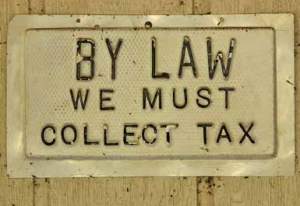 It was a story that got wide national play on April 1 when Seattle implemented the first phase of what in a couple of years will be the highest-in-the-nation minimum wage of $15 an hour. I even saw Mayor Ed Murray interviewed about the minimum wage live on CNN.
It was a story that got wide national play on April 1 when Seattle implemented the first phase of what in a couple of years will be the highest-in-the-nation minimum wage of $15 an hour. I even saw Mayor Ed Murray interviewed about the minimum wage live on CNN.
But another highest-in-the-nation Seattle increase that day got no big notice. The Seattle sales tax, already tops among the nation’s largest cities, went up from 9.5% to 9.6%. In many ways that says as much about the mindset of Seattle and Washington State.
You see, Washington State has the nation’s most regressive tax structure. That means poor people pay a lot more of their income in state and local taxes than do rich local folks like Bill Gates, Jeff Bezos, Paul Allen and Steve Ballmer. The main reason for this is Washington State’s lack of a state income tax, which likely would tax higher income-earners at a higher rate than lower income-earners. A heavy reliance on a sales tax shifts the tax burden from rich to poor, since the rich earn so much they can’t spend it all while the poor have to spend everything they earn just to make ends meet.
A regressive tax system goes against liberal orthodoxy. But it’s certainly on display for all to see in liberal Seattle, where Barack Obama got 86% of the vote in 2012 and remains a popular figure. In 2010, the year before I became New To Seattle, a statewide ballot question to put an income tax on the highest 1% of taxpayers was handily defeated. Hereabouts, they talk more than they walk.
Indeed, one interesting juxtaposition in Seattle is the need for a higher minimum wage coupled with the relatively lofty cost of living (54% above the national average). As I asked in a post last year, “If the Seattle minimum wage is so low, why are costs so high?” One reason is Washington State’s system of hidden business and occupation taxes, a sort of hidden extra sales taxes on many enterprises. It’s hidden because the B&O tax don’t appear as a line on a receipt. But as such, it is a highly regressive tax, too. The B&O tax funds almost a fifth of the state government, which I’m pretty sure is another top in the nation.
Of course, places that lacks one of the major broad-based levies like a sales tax have a funny way of making much of it up in other ways. In King County, where Seattle is, a 1.78% excise tax is assessed on home sales, or $12,460 on a $700,000 house. There also can be a nickel-and-dime approach to this. If you are unfortunate enough to die here, King County charges a $50 fee to file the mandatory report with the Medical Examiner’s office.
The 0.1% increase in the sales tax, at least, was approved by Seattle voters. It was sold as a dedicated sum to restore mass transit cuts. That followed a grand governmental tradition of allowing voter to pass taxation judgment on popular programs like buses and libraries, but not allowing votes on, say, salaries of elected officials.
On CNN, Murray wasn’t asked about the sales tax increase, for which he pushed mightily. No fool, Murray didn’t bring it up, either.

Pingback: Leaving Seattle, amid pondering | New To Seattle